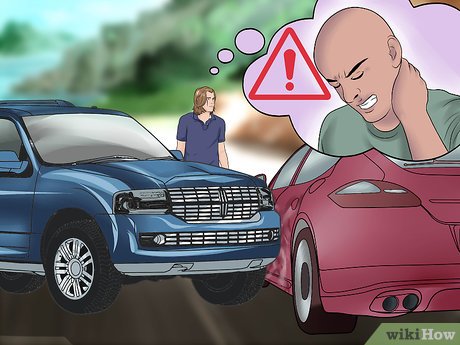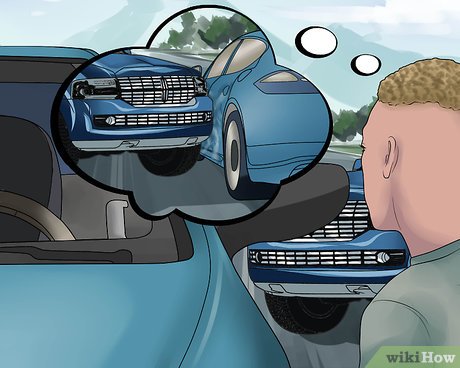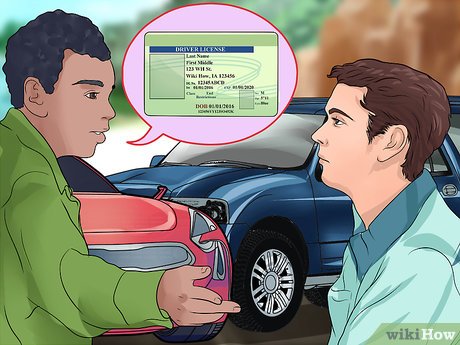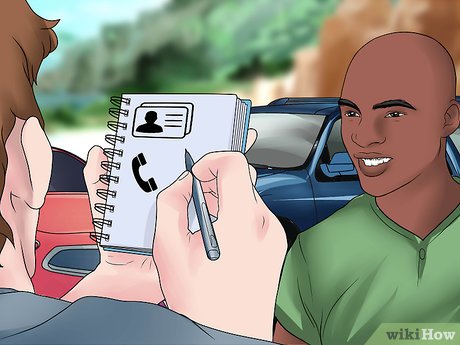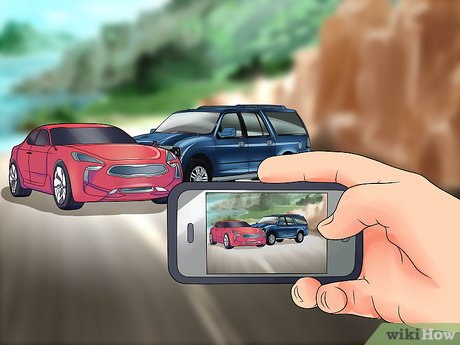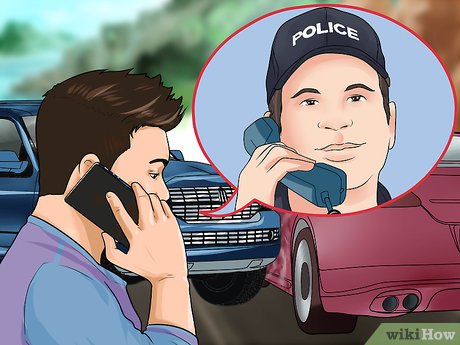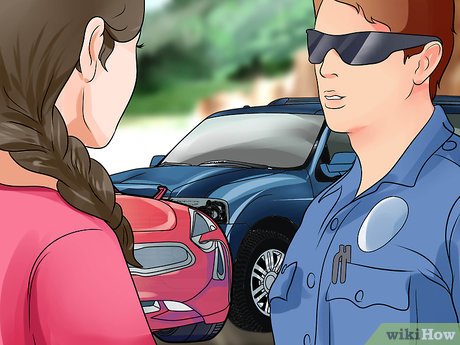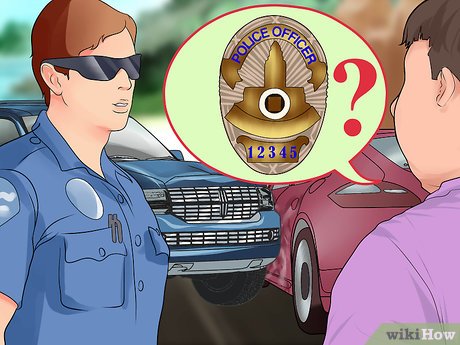How to Know Whether to Call the Police After a Car Accident
Part 1 of 2:
Assessing the Situation
-

Check yourself and your passengers for injuries. If you are involved in a car accident it can be a painful and traumatic experience. The first thing to do is stop your car. Switch on your hazard lights to alert other drivers to the accident. If signs are posted that state to do so, pull out of the lane of traffic onto the shoulder or emergency lane.[2] X Research source [3] X Research source Evaluate yourself for any injuries that might have been caused by the crash. Try to keep calm and think about the safety of yourself and the passengers in your the car.
- After checking yourself over, look around the car and talk to your passengers to see if anybody is hurt.
- If you or any of your passengers are injured, call the emergency services immediately. This means both the police and an ambulance.[4] X Research source
-

See if anybody in the other car is hurt. If nobody in your car is hurt and it is safe for you to get out of your car, you can go and check on the other car involved in the accident. The first priority should be safety so you need to assess the situation carefully.[5] X Research source If it is safe to check the other car, and you discover that somebody is hurt, you should call the emergency services immediately.
- If the road is blocked by your car or the other car involved in the accident you should call the police so they can come and close the road and avoid any further accidents.
- Do not in any circumstances keep driving or leave the scene of the accident before everything is taken care of.[6] X Research source
- In many countries, if you fail to stop after an accident you may be charged with an offence.[7] X Research source
-

Determine the extent of the damage to the cars. You should always prioritise the health and safety of the people involved in the accident before you start thinking about your car and your insurance.[8] X Research source Once you are satisfied everyone is okay and safe, you can start evaluating the damage to the vehicles involved. The extent of the damage will determine whether you need to call the police immediately or if you can call them a little later. The law varies by state, but if you are in doubt make the call and explain that it is not an emergency.[9] X Research source
- You should always report an accident to the police within 24 hours, but if it is not an emergency and doesn't require the police to attend, you do not have to call from the scene of the accident.[10] X Research source [11] X Research source
- If the value of the damage is above around $1000 you should call the police from the scene to report the accident immediately.[12] X Research source
- A minor dent or scratch will not require immediate police involvement.[13] X Research source
- Nevertheless, it's best to call the police when your memory of the incident is fresh. You are likely to forget details if you try to fill in a police report later.[14] X Research source
-

Assess the other driver. If the accident is minor, nobody is hurt, and the driver from the other has stopped his car and is cooperating and sharing his name, address, licence number and insurance details you will not need to call the police. Nevertheless, it is always the best idea to call the police for your own protection and for insurance purposes.[15] X Research source [16] X Research source Definitely contact the police if:
- The driver doesn't stop or drives away without giving you the information you need.[17] X Research source
- The driver appears intoxicated or was driving dangerously.
- The driver threatens you in any way, or is aggressive and confrontational.
-

Know the information you need. When you are talking to the other driver it's important that you keep calm and get all the information you need. Do not admit culpability, or blame the other person for the accident. Dispassionately gather all the personal and insurance details.[18] X Research source
- You should record the name, address and contact details of the other driver.
- Write down the driver's licence number, licence plate number, the make and model of his car, and his insurance company.[19] X Research source
-

Take photos of the damage. Thanks to the miracle of mobile phones, almost everyone now has a camera with them at all times. Take immediate notes of what you think happened, and snap some photos of the damage to your car and to the other car. This will be very useful for filing your insurance claim later.[20] X Research source
- It will also be helpful if the other driver decides to file a case against you or claim that the accident caused more damage than it really did. Take photos from as many angles as you can.
Part 2 of 2:
Calling the Police
-

Make the call. If anybody is hurt, there is serious damage to the car, or the other driver does not cooperate, then you definitely need to call the police to report the situation and get some assistance. When talking to the police on the phone, keep calm. Clearly state your name and say you've been in a car accident. It is also important to give the police your exact location so they can send someone out to you immediately.
- After calling the police, call your insurance agency right away.
- You should always call the police before you call your insurance company.
-

Stay objective when talking to the police. When the police arrive be polite, but do not tell the police that the accident was your fault, even if you may think so.[21] X Research source Equally, you should not tell the police officer that the accident was the other driver's fault. If you think the other driver is drunk, then leave it up to the police to determine if there should be any DUI charges filed and to what extent. All you have to do is stick to the facts of the incident while relaying your side of the story and always be honest and objective in doing so.
-

Get some information from the police officer. The police officer will ask you questions, but you also need to get some information from him too. You should be sure that you record the name of the officer on the scene, as well as his badge or ID number. Note down his phone number and the police report number for the accident.
- You should also ask for a copy of the police report. This may take a few days, but can be important if there is a dispute about which driver was at fault.[22] X Research source

